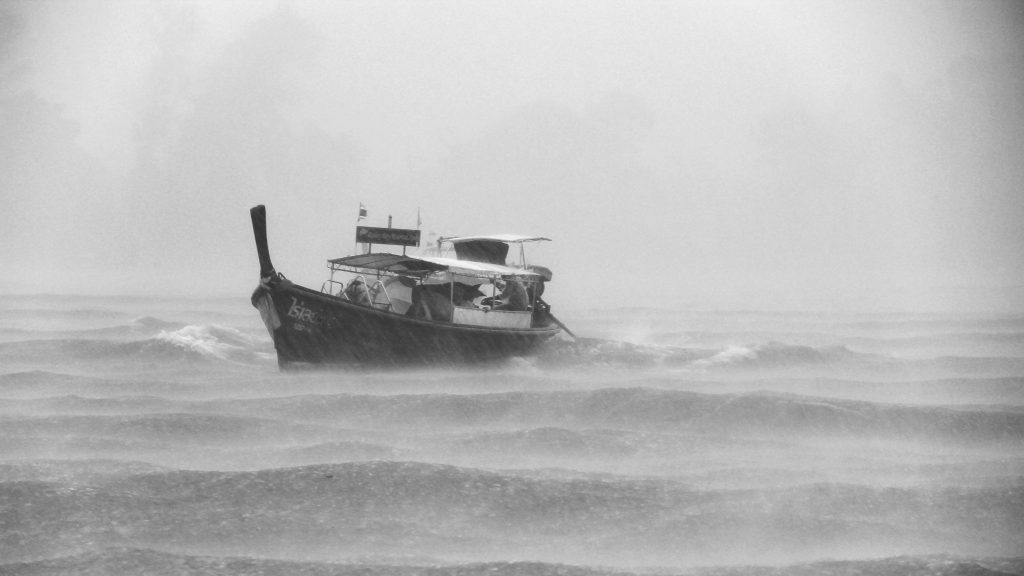I was lucky enough to catch a glimpse of the pandemic a few weeks in advance and to be able to act based on the signs, intuition and experience to face a challenge that we did not even imagine what it would finally be like.
The signs were the cancellation of a project in Germany and the anger around the Mobile World Congress in Barcelona. The intuition, that we were facing something unknown and devastating. The experience was that of my colleague Thierry de Beyssac warning me that in the face of real crises, the “worst-case” had to be “really” a nightmare scenario.
Today, two years later, I know that surviving would have been impossible without the trust of our partners and the support and ability to sacrifice of all of us who comprised of Axialent in March 2020. Practically our entire operation was face-to-face with our clients, and involved travel throughout Europe and America that was cut off to prevent the spread of Covid-19.
That was the situation.
The first thing I perceived was fear — fear in our people, fear in our clients, fear in our families. And I understood that the first thing we had to do was to overcome fear.
I set myself three priorities to transform fear into hope.
The first: guarantee the survival of the company. We did it by renegotiating the financial structure, expanding the capital base and applying very tough cost management that included pay cuts up to 50% in the highest salaries and eliminating all non-essential expenses.
The second: talking to people, honoring our values and proposing a pact to socialize sacrifice so that no one would be left behind in circumstances in which uncertainty and vulnerability were total. The tsunami had hit us in the middle of the sailing and all of us on the Axialent ship deserved to reach port together, safe and sound. So we agreed, so we did. It is what I am most proud of as CEO.
The third: to talk to our customers and offer help and support with the ship afloat and the crew weathering the storm. They were just as scared and perplexed as we were. It was the best we could do — we helped each other. We designed new services together that helped them in a complex and challenging scenario, and because of this we were able to reinvent ourselves beyond what we would have dreamed of without the pressure of the coronavirus.
The implementation of these three priorities brought us an unexpected gift, which was to accelerate innovation. Almost without realizing it, we began to do remotely what we were doing in person. The need helped us to make possible what we previously saw as impossible — and for which we had brought a team to the company whose presence at that time was critical. Thanks to this, we found ourselves giving new answers to the new problems that the pandemic brought to the table. At the same time, none of this was easy. And although today I see these two years as a vital and invaluable learning experience, the truth is that we all suffer a lot and still continue to suffer consequences of COVID-19.
At some point, we used the tools we use with our clients to see how we were working in the midst of chaos and the result overwhelmed me. I heard things that I did not like, and it helped me to see things that I did not see. All of this helped us to correct course, and taught me how the humility to admit mistakes is the best ally to create the confidence that is needed to act and lead in uncertainty.
When they ask me what my keys as CEO were for Axialent to survive, I answer that I listened a lot and made quick decisions at the service of the people. Decisions to empower, remove obstacles and protect with an armored umbrella those who were on the front lines helping our clients, containing the budget, or reinventing our services. And underneath the armored umbrella manage the storytelling without essentially missing the truth and remembering that “a team is a state of mind” as my friend Jorge Valdano says. I considered that some bad news or explaining in detail the size of certain obstacles would only serve to increase the distress and discouragement of the team in the midst of the greatest challenge most of us had ever faced in our lives. I sincerely believe that this selective transparency, and sometimes with an optimistic bias, helped us stay on course and reach port.
The pandemic brutally showed us the difference between what we can control and what we cannot. Knowing how to make this distinction and focus energy on what is under our control is what we call at Axialent “unconditional responsibility” which, next to caring for people, are the keys to getting out of a crisis like the one we are experiencing with more awareness and wisdom. Is important to know it now since we also know that this is not last crisis we will have to live.
